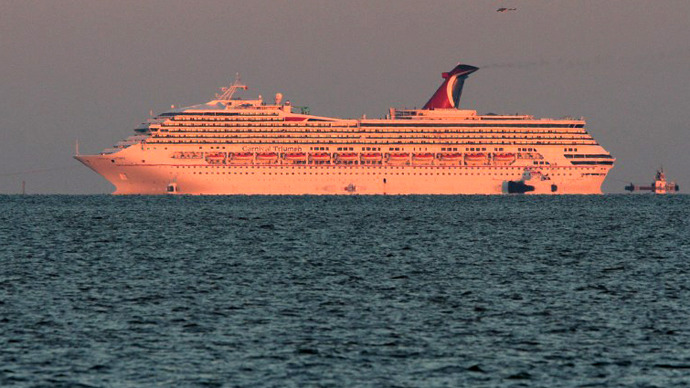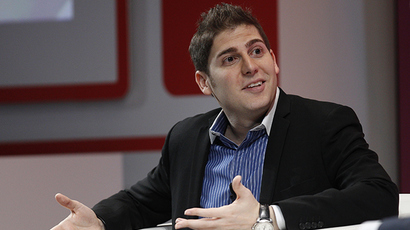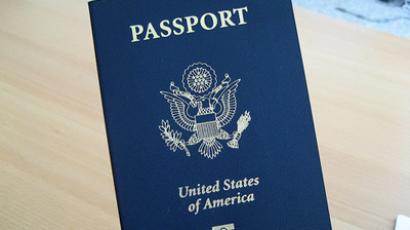Silicon Valley mulls creation of floating colony in the Pacific

Two American entrepreneurs have made plans to build a floating colony in the Pacific Ocean, where they will bring the world’s most intelligent scientists that are unable to attain a visa to enter the US.
The floating colony, which will consist of a large cruise ship parked 12 miles off the Californian coast, will host numerous start-up companies employing the brightest scientists and engineers. Colony residents must be qualified to work there, but are not required to attain a US work visa.
The Silicon Valley entrepreneurs who founded the project are Max Marty and Dario Mutabdzija, two businessmen who worked together at The Seasteading Institute, an organization that facilitates the establishment of mobile communities on international waters. The entrepreneurs have named their proposed colony “Blueseed” and have already started accepting applications from individuals and companies that want to move there. They plan to launch the colony in the second quarter of 2014.
More than 380 companies from 68 countries have already applied for a spot on the floating cruise ship. Marty, the son of Cuban immigrants, told the Los Angeles Times that he came to the US as a refugee from Yugoslavia and is fed up with some US lawmakers’ stark opposition to immigration. He is troubled by the fact that the US, unlike other countries, offers no visas to foreigners who are highly skilled or willing to start a business.
“A lot of people say, ‘I’d like to go to Silicon Valley’ but there is no way for them to do it,” he told the Associated Press, shortly after launching the initiative in 2011.
He said that he came up with the idea of colonizing a ship after hearing university students complain about having to leave the US upon graduation. But even Americans are willing to say goodbye to solid ground and head for the high seas.
They too want to “live and work in an awesome startup- and technology-oriented space”, Mutabdzija told Forbes. And it’s not just scientists and engineers who have applied to move to the cruise ship: anthropologists and sociologists interested in monitoring human interactions on the colony have requested to go onboard.
Individuals and companies from countries including Azerbaijan, Poland, Jordan and Sri Lanka have all put in their applications, and Mutabdzija is excited about the prospect of “connecting people, ideas and a human touch”.
While there will be a variety of living arrangements, the cost of basic accommodations is expected to be as low as $1,200 per person, per month, and as high as $1,600. Blueseed will not collect taxes from colony residents, but will expect them to abide by the tax laws of their home countries.
“I think Blueseed is an incredible opportunity for non-US entrepreneurs to work in what is no doubt the most powerful start-up environment in the world,” Andrew Considine, co-founder of the Ireland-based mobile start-up Willstream Labs, told the LA Times.
The Blueseed founders are currently trying to raise $27 million to lease a cruise ship that can house 1,000 entrepreneurs.
“I don’t know whether Blueseed will work or not,” said Silicon Valley investor Mike Maples, who gave money to the project. “But here’s another opportunity to help people who want to come to this country to build great companies.”














